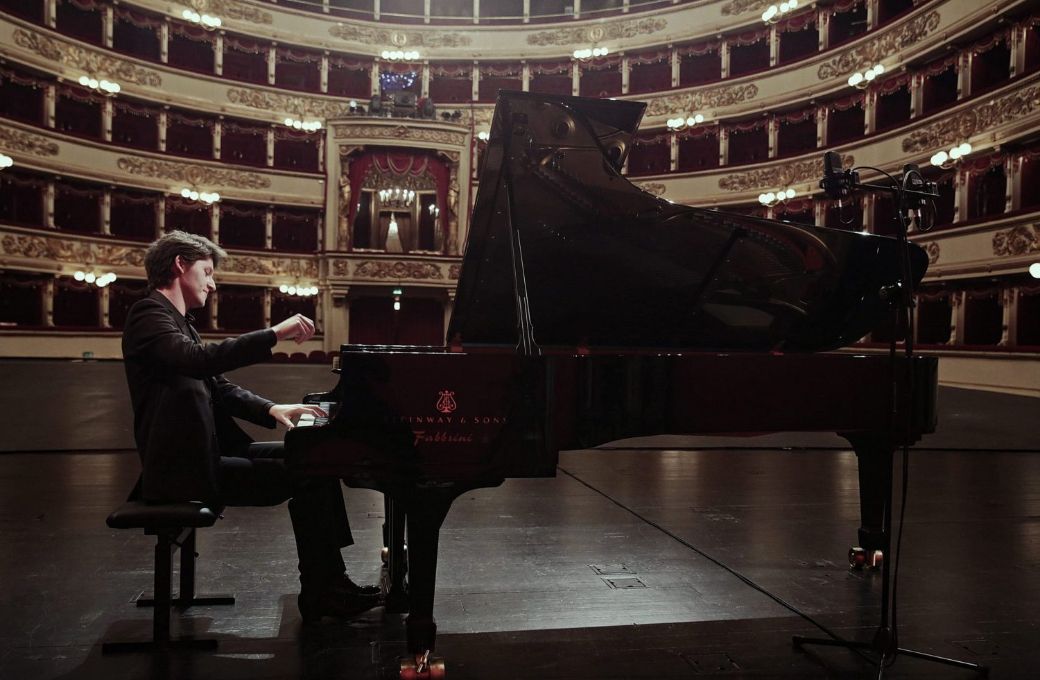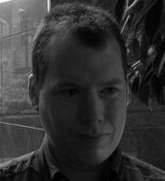When Emanuil Ivanov won First Prize at the Ferruccio Busoni International Piano Competition in 2019, he added his name to a list of laureates that includes such towering figures as Martha Argerich, Garrick Ohlsson and the late Maurizio Pollini. The young Bulgarian pianist’s performance of Saint-Saëns’ Piano Concerto no. 2 in the final round convinced the jury gathered in Bolzano, Italy, for the competition’s 70th-anniversary edition.

The victory was uniquely fitting, since the legacy of the competition’s namesake has inspired Ivanov since his early teenage years. “I became familiar with Busoni’s music already at that stage,” he recounts, on a recent video call. But along with his highly original compositions, Busoni’s reputation as a titan of the keyboard also intrigued Ivanov. “We are lucky to have a few recordings of his playing available, some on piano rolls. From these, it’s evident to me that he was one of the most amazing pianists in history.”
Ivanov recalls falling in love with Busoni’s Piano Concerto as soon as he encountered it a decade or so ago via the acclaimed recording on the Hyperion label by the French Canadian pianist Marc-André Hamelin (one of only a handful of commercial recordings made thus far in the 21st century). One of the most unusual exemplars of the genre ever conceived, the Piano Concerto in C major, Op. 39, is a 70-minute epic in five movements, the last of which adds a men’s chorus to the soundscape: they sing a “Hymn to Allah” excerpted from the Danish poet and playwright Adam Oehlenschläger’s play Aladdin, or the Wonderful Lamp.
On 27th June, Ivanov will be able to fulfil his longstanding dream of performing the work when he appears as the soloist with the Sofia Philharmonic at Bulgaria Hall under the baton of Emil Tabakov. The concert marks the first time that the orchestra has programmed the Busoni Concerto – Ivanov is not aware of any previous performances of the work elsewhere in his native country.
“I realised that 2024 marks 100 years since Busoni’s death and thought: Why don’t I challenge myself and propose doing that piece to the Sofia Philharmonic,” he says. Still, even with a milestone anniversary year to help nudge things along, live performances of the Busoni Concerto remain rare occasions. Which is why the Sofia Philharmonic’s inclusion of the work on its season-closing concert promises to be a special event. The Concerto shares the bill with the music of another visionary composer-pianist and contemporary of Busoni, The Poem of Ecstasy by Alexander Scriabin.
Born in 1998 in the southern Bulgarian city of Pazardzhik, Ivanov discovered music on his own – there were no other musicians in the family – when he began listening as a young child to the classical records in his parents’ collection. “I was so amazed by the sounds and wanted to find out how to produce that glorious music,” he recalls.
Ivanov was initially attracted to the symphonic repertoire: above all, to the music of Gustav Mahler. “My dream was to become a conductor. I wanted to be the one in charge of an orchestra, who creates all of this amazing sound. And because of that dream, for the first few years of my piano training, which I began at around 7, I was not so focused on the instrument. But then around the age of 10 – I don’t know why – I started to listen to more interesting piano repertoire and my focus shifted.”
Rather than the standard repertoire, it was to the composer-pianists of the later 19th and early 20th centuries that Ivanov gravitated – along with Busoni, he mentions such figures as Nikolai Medtner, Sergei Rachmaninov and Leopold Godowski, all of whom are associated with a golden age of super-virtuoso pianists.
“A very important factor in my development as a musician was YouTube, which is a sign of the times, I guess,” Ivanov says. “When I was around 11 or 12, it was very easy to find a lot of this music. In particular, I’m quite indebted to the recordings of Marc-André Hamelin. I was very inspired by them.” He also recalls being electrified by Busoni’s own recording of his transcription of Bach’s Chorale Prelude in G major, BWV 734 (Nun freut euch, liebe Christen).
After several years of study with the Bulgarian pianist Atanas Kurtev, Ivanov moved to the Royal Birmingham Conservatoire to study with Pascal Nemirovski and Anthony Hewitt and is currently completing his master’s degree there. The Covid pandemic disrupted the extensive lineup of performances at prestigious international concert halls that would have followed Ivanov’s victory at the Busoni Competition. He was therefore invited to give the first-ever solo piano recital by a winner of the Busoni Prize at the Teatro alla Scala in February 2021, which was live-streamed to millions of viewers.
Ivanov’s programme included Busoni’s Fantasia after Johann Sebastian Bach and Scriabin’s Fifth Sonata, among other works. The Fantasia, he says, “is a very deeply moving piece. I wanted to play it because it was at the height of the pandemic, and it was like a lamentation or prayer for all those who were impacted.”
The upcoming Sofia Philharmonic concert will mark Ivanov’s first time playing the Busoni Piano Concerto. “It’s a very peculiar work. People either hate it or love it. I was immediately in love with the piece – maybe because my musical tastes, especially for symphonic music, have always focused on composers like Mahler, Wagner, and this is also on such a grand scale. The first movement starts off almost like Brahms, but then, very quickly, Busoni begins doing these modulations which Brahms would never dare. It’s a new zone of exploration.”
Busoni began composing his Piano Concerto just after the turn of the century, and unveiled the work in 1904, appearing as the soloist with the Berlin Philharmonic. “It’s very rare to hear this concerto for a few reasons,” Ivanov explains. “One is, of course, because the piano part is very difficult, but an even more important hindrance may be the fact that it’s so long and requires a male choir. Logistically, that makes it difficult to organise as part of a concert season.”
What makes Busoni’s piece such a formidable challenge for the soloist? “It’s not a typical piano concerto in the sense of a Rachmaninov concerto, where the focus is, more or less, on the soloist, who carries most of the tunes. That’s not the case with Busoni. No matter how difficult the piano part becomes, frequently you have to be slightly subdued because it’s more like accompaniment in nature. For example, the second part of the third movement has incredibly difficult passage work for the piano – arpeggios and triplets going up and down for a few pages – but at the same time, the tune is given to the woodwinds, so you have to be extra careful to keep the piano part down a little bit. Keeping the balance right, I think, is the most difficult part of it.”
The Piano Concerto combines Busoni’s identities as a composer and piano virtuoso. Ivanov’s fascination extends to Busoni’s writings on musical aesthetics, which reflect his desire to balance his profound respect for tradition with his progressive views.
Busoni, who was born in Tuscany but became strongly attracted to German culture and made Berlin his adopted city, sometimes suggests a character out of a Thomas Mann novel in his attempt to synthesise the discipline and rigour of the North with Mediterranean grace. In his own way, Busoni aspired to fuse the insatiable fantasy of Leonardo Da Vinci with the contrapuntal invention of JS Bach, one of the his abiding inspirations. Ivanov says he is very conscious of “the importance of structure for Busoni”, who made an architectural drawing to try to clarify the structure of his Piano Concerto to his wife.
Following his Busoni adventure, Ivanov will make his debut in October at London’s Wigmore Hall, for which he’s chosen another epic by a virtuoso composer-pianist: Frederic Rzewski’s The People United Will Never Be Defeated! He’s also looking forward to the release on Naxos of an album of Scarlatti sonatas which he recorded a couple of months ago. And Ivanov hopes to carve out more time to focus on his own composition, which has been part of his creative life since an early age. He mentions an incipient sonata for cello, which is first exploration outside his own instrument.
How does Ivanov move so easily from one type of repertoire to another? “I’m naturally quite curious about different types of repertoire and like a lot of things. Busoni’s own solo repertoire spanned many different styles and composers. There is such a wealth, a huge variety in our piano repertoire. So I think it’s wise to take advantage of that.”
Emanuil Ivanov performs Busoni’s Piano Concerto with the Sofia Philharmonic on 27th June.
This article was sponsored by the Sofia Philharmonic.


